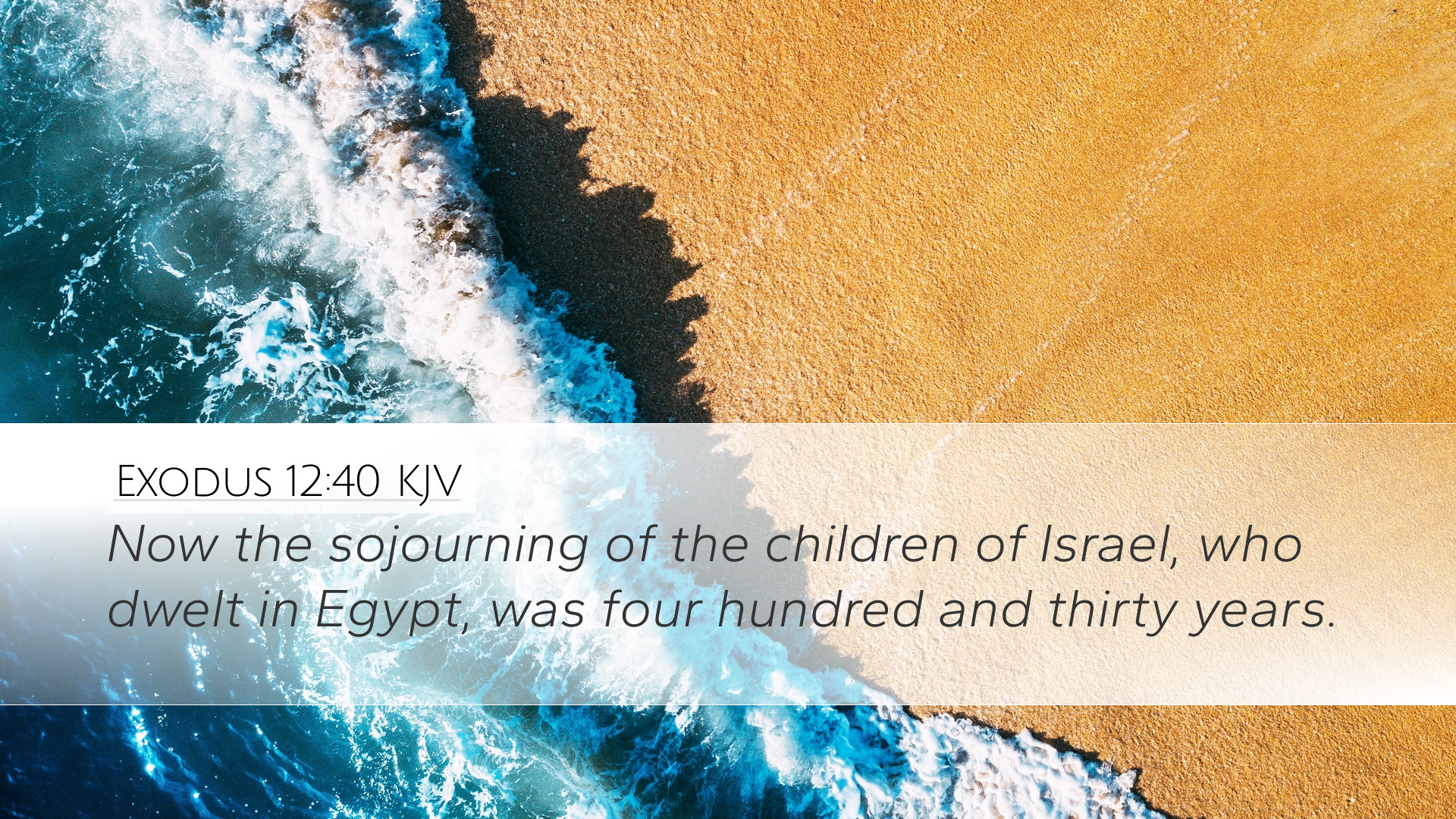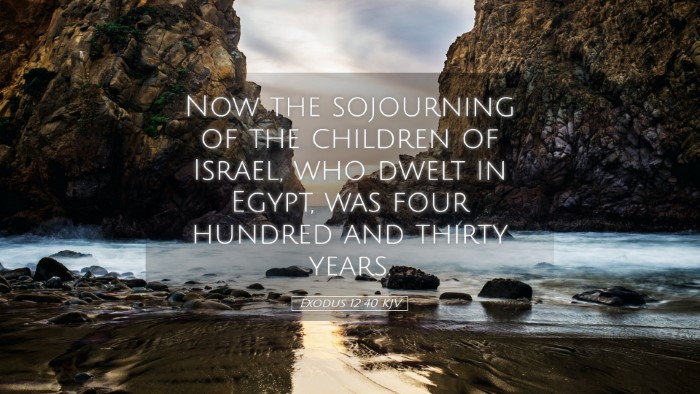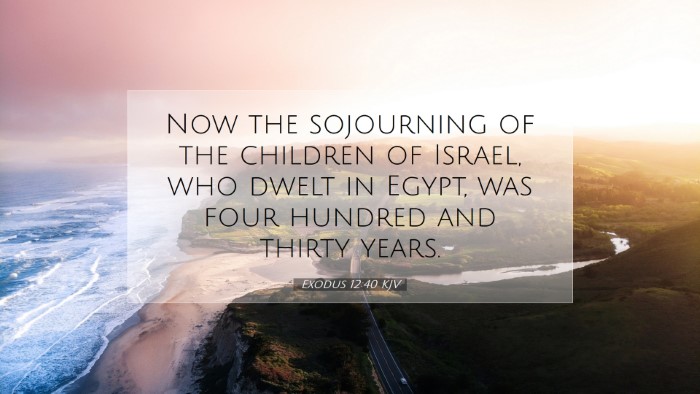Commentary on Exodus 12:40
Exodus 12:40 reads: "Now the sojourning of the children of Israel, who dwelt in Egypt, was four hundred and thirty years." This verse marks a significant moment in the narrative of the Israelites, encapsulating their prolonged period of bondage in Egypt and setting the stage for their impending deliverance. The insights provided by esteemed Biblical scholars such as Matthew Henry, Albert Barnes, and Adam Clarke serve to illuminate various dimensions of this verse, offering a deeper understanding for pastors, students, theologians, and Bible scholars.
Historical Context
Matthew Henry emphasizes the importance of historical context in understanding this verse. He notes that the period of 430 years signifies the time from Abraham's sojourning to the Exodus, underscoring the fulfillment of God's promises. This long duration serves not only as a testament to the Israelites' perseverance but also to God's enduring faithfulness amidst trials. The narrative illustrates how God can sustain His covenant people even in the depths of suffering.
Theological Significance
Theologically, this verse carries profound implications about God’s sovereignty and redemptive plan. Albert Barnes points out that the four hundred and thirty years include both the Egyptian captivity and the earlier timeframe of wandering and sojourning, signifying God's preparation of His people for deliverance. It reflects God's timing in fulfilling His promises and highlights His control over history. This understanding encourages believers to trust in God’s sovereignty even in prolonged waiting periods within their own lives.
Symbolism of Sojourning
Adam Clarke brings forth the symbolic aspect of the term "sojourning." He explains that the term reflects both physical and spiritual dimensions, emphasizing that the children of Israel were not permanent residents in Egypt but temporary dwellers. This notion of sojourning is essential for understanding the Christian journey; believers are reminded that their true home lies beyond this earthly existence. Clarke eloquently articulates that just as Israel was called out from Egypt, Christians are called to be distinct from worldly influences.
Reflections on Divine Promises
The narrative encapsulated in Exodus 12:40 serves as a reminder of God's covenant with Abraham and his descendants. Henry reflects on how God’s promise to Abraham included not only blessings for his lineage but also a foreshadowing of their trials. This verse reminds believers of the importance of faith in God’s promises, even when circumstances appear bleak. The mention of "sojourning" emphasizes that God had a plan for His people, which he fulfilled through the moments of trial.
Endurance Through Suffering
Barnes further elaborates on how the lengthy period of captivity can serve as a comfort for Christians facing their own struggles. It highlights the reality that endurance in challenging times often precedes divine intervention. This period of 430 years reflects not just suffering, but also the hope for liberation and redemption. It serves as a potent reminder for congregations that enduring trials can lead to a greater understanding of God’s ultimate purpose.
The Role of Memory and Tradition
Clarke emphasizes the role of memory and tradition in the Israelite community. The recollection of their lengthy sojourning served as a crucial component of their identity. This remembrance is pivotal in worship and teaching, ensuring that the lessons learned from suffering and liberation are passed down through generations. For modern believers, this underscores the importance of reflecting on God’s faithfulness in their own spiritual narratives and community worship.
Applications for Believers
This verse encourages contemporary believers to examine their own journeys of faith. Just as the Israelites waited for deliverance, Christians are often called to wait on God's timing. Henry suggests that understanding this wait can foster patience and a deeper reliance on God. Additionally, the concept of being "sojourners" compels believers to live in a way that reflects their identity as citizens of heaven, engaging with the world while maintaining a distinctiveness that honors God.
Conclusion
Exodus 12:40 encapsulates a rich theological history and profound reflections on the nature of God, suffering, and deliverance. By examining the insights of Matthew Henry, Albert Barnes, and Adam Clarke, we glean essential truths about endurance through suffering, the significance of historical context, and the importance of relying on divine promises. This verse not only chronicles a significant event in Israel's history but also imparts valuable lessons for modern believers as they navigate their spiritual journeys.


